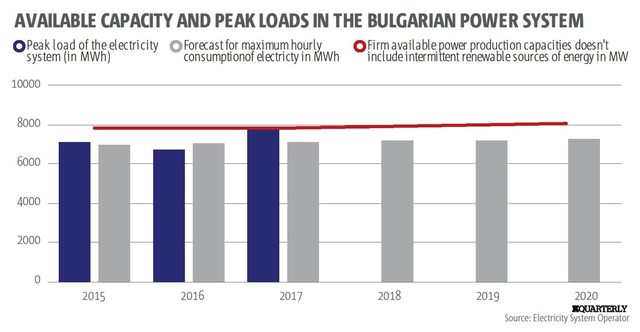Gazprom offered commitments to change its marketing practices in the Central and East European markets, following investigation by the European Commission anti-trust authority. For more than four years Gazprom has been investigated for abuse of its dominant position, which allowed the Russian company to overprice its gas on those markets. The commitments will enter into force by the end of April, although most provisions were already implemented.
The main effect for Bulgaria will be the possibility to ask for a renegotiation of gas price, if it diverges from Western European price benchmarks, including prices at competitive gas hubs. Bulgarian gas prices are oil-indexed and in 2011-2014, when the oil price skyrocketed, natural gas in Bulgaria became extremely expensive.
Gazprom will also remove any market segmentation clauses in its gas supply contracts with Bulgarian customers. Until now the Russian company forbade its customers to re-export the gas they receive under long-term contracts. Gazprom has committed to make changes in its monitoring and metering contractual provisions, which prevented free trade and in practice stripped the Bulgarian gas system operator of control of the cross-border flows of gas. These two measures will facilitate more active trade, including swap operations with distant markets.
The Russian gas company also committed not to seek damages from the terminated South Stream gas pipeline project. It is not clear what kind of damages could Gazprom seek, but it most probably has to do with the price discount Bulgaria received in 2012 in return for its agreement to sign the Final Investment Decision for the project.
Bad January for the Bulgarian energy system
On 13th of January the Bulgarian Ministry of Energy banned power exports in order to guarantee domestic supplies. The move was unexpected, because Bulgaria is supposed to have enough capacity to meet energy consumption even invery cold winter months. Peak consumption in January reached 7700 MW, while the Bulgarian Electricity System Operator had projected 7810 MW firm capacity, not including the intermittent renewables that can be used to meet increased domestic demand. The ban was caused by a failure to activate some of the reserve capacities. It remained in force for 25 days, even though peak consumption lasted for just a few days.

Gazprom offered commitments to change its marketing practices in the Central and East European markets, following investigation by the European Commission anti-trust authority. For more than four years Gazprom has been investigated for abuse of its dominant position, which allowed the Russian company to overprice its gas on those markets. The commitments will enter into force by the end of April, although most provisions were already implemented.
The main effect for Bulgaria will be the possibility to ask for a renegotiation of gas price, if it diverges from Western European price benchmarks, including prices at competitive gas hubs. Bulgarian gas prices are oil-indexed and in 2011-2014, when the oil price skyrocketed, natural gas in Bulgaria became extremely expensive.












